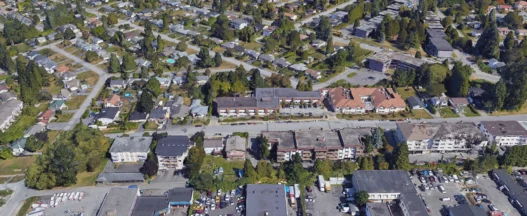
Mon Sheong Stouffville Long Term Care Centre (162 Sandiford Drive, Stouffville) is operated by Mon Sheong Foundation (孟嘗會), a Canadian charity to support the Chinese-Canadian community. There are approximately 320 beds.
Inspection Reports for Mon Sheong Stouffville
Our research team carefully reviewed and summarized inspection reports for Mon Sheong Stouffville You can read the original copies of the reports in the Government of Ontario website.
October 2023
The inspection took place from August 28 to 31 and September 1, 5 to 8, 2023. Various complaints and incidents were investigated, including improper care, resident-to-resident abuse, staff-to-resident abuse, and resident neglect.
- Zero Tolerance Policy: The licensee failed to ensure staff complied with the Long-Term Care Home’s written policy to promote zero tolerance of abuse and neglect of residents. An incident was not promptly reported to the Ministry.
- Complaints Procedure – Licensee: The licensee failed to ensure a written complaint from a Substitute Decision-Maker (SDM) concerning resident care and staff assignment changes was immediately forwarded to the Director as per regulations.
- Hazardous Substances: Hazardous substances were not properly labeled and kept inaccessible to residents, violating regulations.
- Complaints Procedure: Licensee: The written procedures for dealing with complaints did not incorporate required information between April 11, 2022, and July 2022, as per regulations.
- Dealing with Complaints: The response to a complaint on April 13, 2022, did not include Ministry’s toll-free telephone number and ombudsman contact information, as required by regulations.
- Dealing with Complaints: The home failed to maintain a documented record of responses provided to a resident’s SDM regarding a complaint, violating regulations.
- Additional Requirements: A complaint alleging harm or risk of harm to a resident was not immediately forwarded to the Director, as required by regulations.
An administrative penalty of $5500 was imposed on the licensee for failing to comply with a Compliance Order.
The licensee was ordered to comply with specific measures related to hand hygiene, audits, documentation, and records due to non-compliance with IPAC regulations.
A previously issued Compliance Order (Order #001) related to Falls Prevention and Management was found to be in compliance during this inspection.
August 2023
The inspection it focused on critical incidents related to falls resulting in significant changes in residents’ conditions and a disease outbreak.
- Skin and wound care: The licensee failed to ensure that a resident with altered skin integrity, who had a surgical wound, was reassessed at least weekly by a member of the registered nursing staff. This lack of documentation and assessment for wound healing could potentially delay necessary interventions and treatments.
- Infection prevention and control program: The licensee did not report to Public Health as soon as possible when four residents exhibited symptoms meeting the criteria for an outbreak, as per the home’s policy. Delaying the notification to Public Health posed a risk by impeding prompt intervention in managing the outbreak.
February 2023
The inspection took place over several dates in January 2023 and covered various intake types, including complaints, follow-ups, and critical incidents.
The inspection was led by Britney Bartley, supported by Fatemeh Heydarimoghari, Amandeep Bhela, and Julie Dunn.
These intakes included allegations of neglect, unknown causes of injury, medication incidents, responsive behaviors, physical abuse, unexpected death, falls resulting in health changes, and changes in a resident’s health status.
- Infection Prevention and Control (IPAC): Routine and Additional Precautions were not consistently followed, with staff failing to perform proper hand hygiene and use personal protective equipment when exiting rooms on additional precautions. This posed an increased risk of infectious disease transmission. Proper use of PPE, including selection, application, removal, and disposal, was not consistently followed when exiting rooms on additional precautions, increasing the risk of infectious disease transmission. PPE supplies were not adequately accessible at the point of care for residents on additional precautions, potentially putting residents at risk of infectious disease transmission.
- Plan of Care: A written plan of care regarding the use of a device for a resident was not provided to staff, posing a moderate risk to the resident.
- Administration of Drugs: A medication was administered to a resident without a prescription, putting the resident at risk of adverse reactions.
- Bathing: A resident did not receive their scheduled bath as per their choice and hygiene requirements, posing low risk to the resident.
- Plan of Care: Safety devices were not consistently applied as specified in residents’ care plans, putting residents at risk of injury. Moreover, care plans were not consistently followed, leading to incidents and risks to residents.
- Requirements Related to Restraining by a Physical Device: A physical device was applied to restrain a resident in bed, which was non-compliant with regulations and posed moderate risk to the resident.
- Maintenance Services: Procedures were not implemented to take immediate action when the water temperature exceeded 49 degrees Celsius, posing a potential scalding risk to residents. Additionally, procedures for monitoring water temperature were not consistently followed during shifts when the computerized system was not in use, posing a potential scalding risk to residents.
Three previously issued compliance orders related to O. Reg. 246/22 were inspected and found to be in compliance.
A compliance order (CO #001) was issued to address non-compliance with falls prevention and management regulations. The order includes requirements for staff retraining and weekly audits.
September 2022
The inspection was conducted from August 2 to 5 and August 8 to 12, 2022.
- Missing Visitor Policy Posting: The home’s visitor policy information was not posted initially but was remedied on August 4, 2022.
- Incomplete Staff Records Keeping: The licensee failed to maintain records for each staff member of the home, including those employed by staffing agencies. Staff records were not kept onsite, potentially compromising resident safety.
- Failure to Report Abuse or Neglect: The home failed to report a suspected case of abuse or neglect promptly, which could increase the risk of further incidents.
- Violation of Resident’s Bill of Rights: A resident was not treated with courtesy and respect, as staff inappropriately discussed personal concerns related to COVID-19 with the resident.
- Meal Service Assistance Delays: Residents requiring assistance with eating and drinking were not always served their meals promptly, affecting their food intake and meal enjoyment.
- Inadequate Feeding Techniques: Proper techniques, including safe positioning, were not consistently used when assisting residents with eating, posing risks of aspiration and choking.
- Care Plan Deviation: The care specified in the plan of care was not consistently provided as directed in the plan.
Additionally, compliance orders were issued:
- CO#001: Maintenance services were ordered to retrain and educate staff on monitoring hot water temperatures, conduct weekly audits, and develop a process for delegating responsibilities.
- CO#002: Maintenance services were ordered to retrain and educate staff on reporting and responding to hot water temperature exceedances, conduct weekly audits, and develop a process for delegation.
- CO#003: Infection Prevention and Control program was ordered to educate staff on PPE use and conduct PPE audits related to selection, application, removal, and disposal.
March 2022
The inspection focused on two specific incidents: one related to infection prevention and control practices and the other involving allegations of resident-to-resident sexual abuse.
- Non-Compliance Issue #1: The inspection found a lack of collaboration between staff and healthcare professionals in the assessment and care planning for a resident, leading to inconsistent assessments and care plans. Specifically, the report mentioned a failure to integrate recommendations from a psychiatrist into the resident’s dietary plan, resulting in further incidents of inappropriate sexual behavior.
- Non-Compliance Issue #2: The inspection revealed that the care provided to a resident did not align with the care plan outlined for that resident. This discrepancy was particularly evident in cases involving non-consensual sexual behavior towards other residents, where interventions were not implemented as required by the resident’s plan of care.
- Non-Compliance Issue #3: The inspection discovered that a resident was not adequately protected from sexual abuse by another resident. The report highlighted instances of non-consensual sexual behavior, resulting in emotional harm and fear for the resident, which were not addressed effectively.
The report concluded with a request for the licensee to prepare a written plan of correction for each non-compliance issue to achieve compliance voluntarily.
January 2022
The purpose of this inspection was to conduct a Critical Incident System
inspection. The inspection was conducted by Lucia Kwok.
- Failure to Ensure Staff Compliance with Infection Prevention and Control (IPAC) Program: The inspection found that the licensee (Mon Sheong Foundation) failed to ensure that all staff participated in the implementation of the IPAC program, particularly in areas like hand hygiene practices, universal masking, donning and doffing of Personal Protective Equipment (PPE), cleaning of residents’ shared equipment, and PPE availability. This failure to comply with IPAC measures posed a risk of infectious agent transmission, including COVID-19, to both residents and staff.
- Inconsistent Hand Hygiene Practices: Observations revealed instances where staff, visitors, and residents did not adhere to proper hand hygiene practices. Some staff members did not perform hand hygiene after disposing of trash, and in some cases, direct contact with residents occurred without subsequent hand hygiene.
- Universal Masking Compliance: The inspection noted instances where staff did not fully comply with universal masking requirements. Some staff members had masks covering only their mouths, which did not meet the proper masking standards, potentially increasing the risk of infection spread.
- Donning and Doffing PPE: In the observation of staff donning and doffing PPE, several issues were identified. For example, staff members did not consistently follow proper PPE protocols, such as changing soiled face shields and masks before exiting resident rooms. Visitors were also observed not following proper PPE procedures.
- Lack of Sanitization for Assistive Devices: In one instance, staff failed to sanitize an assistive device used for a resident before transporting it to storage. This oversight could potentially lead to the spread of infections through contaminated equipment.
- PPE Availability: Observations revealed issues with the availability of PPE, including unlabeled face shields, inadequate stocking of PPE caddies and storage bins outside resident rooms, and new glove boxes left in resident areas. These shortages could hinder staff’s ability to adhere to proper IPAC measures.
- Failure to Complete Skin Assessments: The inspection found that residents with altered skin integrity, such as pressure ulcers or wounds, did not consistently receive skin assessments by registered nursing staff. This omission could delay appropriate treatment and intervention for residents with skin issues.
The inspector has issued compliance orders and voluntary plan of correction (VPC) requests to address these non-compliance issues. The facility is required to take corrective actions to ensure the safety and well-being of residents and compliance with relevant regulations.
November 2021
The purpose of this inspection was to conduct a Critical Incident System
inspection. The inspection was conducted by Bernadette Susnik and Jack Shi.
- Emotional Abuse: The licensee failed to protect a resident from emotional abuse by a Personal Support Worker (PSW). The incident was reported, investigated, and the PSW involved was removed from working in the home.
- Bed Rails: Procedures for evaluating bed rails for entrapment gaps were not followed, posing a potential risk to residents. The home lacked clear guidelines for conducting entrapment tests.
- Communication and Response System: The resident-staff communication and response system did not clearly indicate the source of activation, potentially causing confusion among staff.
- Reporting to Director: An allegation of staff-to-resident abuse was not reported to the Director immediately as required by regulations, resulting in a delayed report.
- Communication with Residents: Proper communication strategies were not used by a PSW when dealing with a resident, contributing to a reported incident of emotional abuse.
- Housekeeping: Procedures for cleaning and disinfecting resident care equipment were not adequately defined, increasing the risk of inadequate cleaning.
- Hot Water Temperature: The home failed to take immediate action when hot water temperatures exceeded 49 degrees Celsius, potentially endangering residents. Procedures for monitoring water temperature once per shift were not followed.















